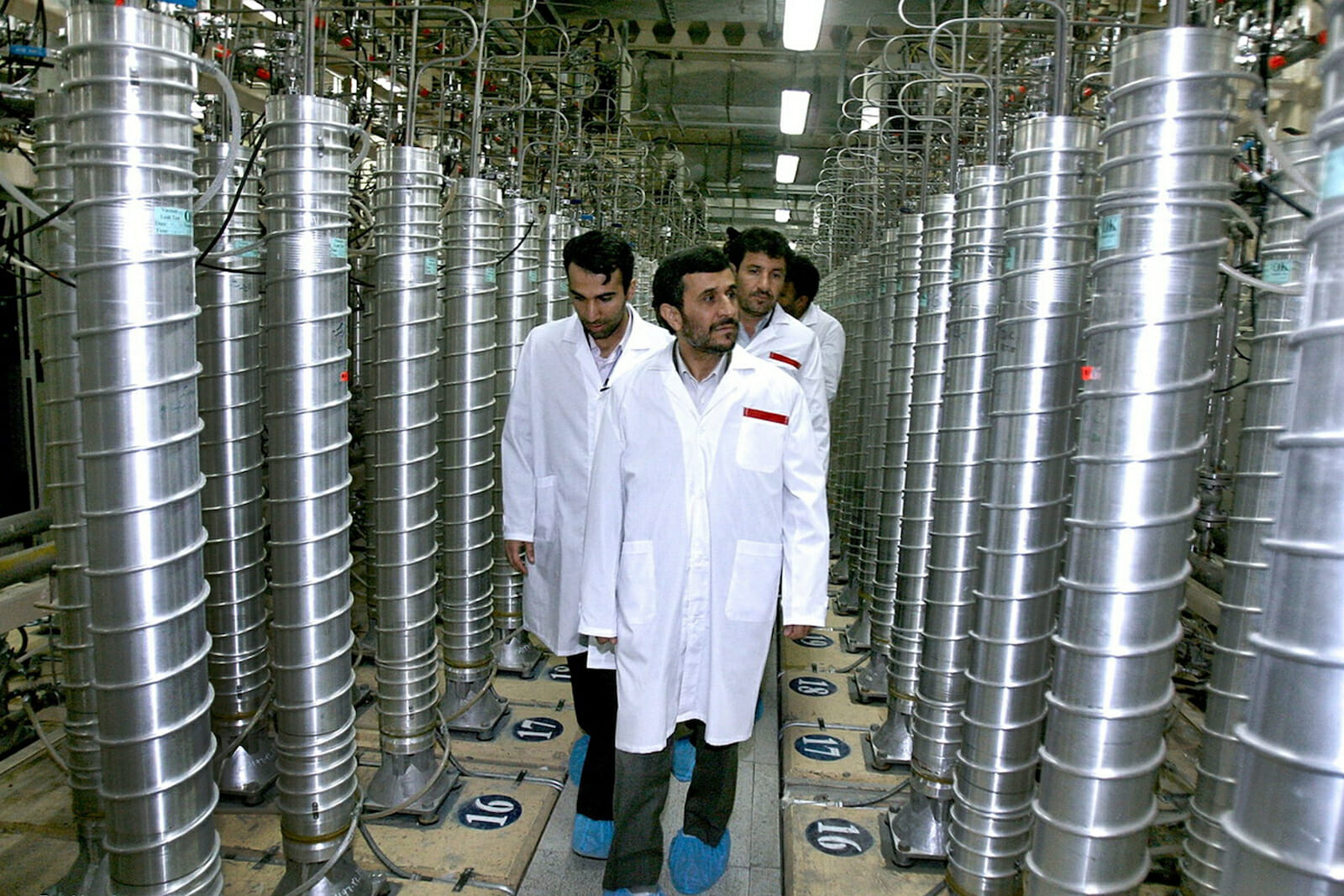
The Iran Nuclear Debate
Over the last few months, there has been much public discussion surrounding the increasing likelihood of an Israeli pre-emptive strike upon Iran, as part of a broader strategy to halt the Iranian government’s supposed nuclear weapons programme. Recently this talk has been muted by Israel’s latest attempts to ‘pacify’ the Gaza Strip, though as far as Israel’s strategic defence is concerned, an Iranian nuclear deployment is a far more dangerous ball game. Or is it? This article aims to purport a convincing argument to the contrary, that Iranian nuclear ambitions are not as great a threat as supposed, and may even be welcome. However, this article also serves to warn of the consequences should a military solution to remove this alleged threat be undertaken, and principally argues that the cost of action is likely to be far greater than restraint.
Reasons Israel should not fear a nuclear-armed Iran
Nuclear weapons are deployed as a deterrent; they are not offensive weapons.
Structural realists are in agreement that nuclear weapons are primarily of defensive use, and thus, much of the hyperbole that surrounds their deployment should be tempered by the knowledge that the purpose of nuclear weapons is deterrence.
Indeed, looking at Iran’s geostrategic position, it is not only vulnerable but also surrounded by hostile states, sharing borders with Afghanistan, Pakistan, and Iraq, as well as NATO member Turkey. This is all without considering the Kingdom of Saudi Arabia across the Persian Gulf, opposed to Iran on the basis of strategic, economic and religious interests.
In addition, with high levels of American influence and military presence in several of these states (Iraq, Afghanistan, Turkey and Saudi Arabia), it is quite logical to presume that the Iranian political hierarchy sees the attainment of a functional nuclear device as paramount to Iranian security.
Israel also has nuclear weapons, thus there would be a situation of MAD.
Some scholars even go further; for example, John Mearsheimer is a keen advocate of nuclear weapon proliferation, (though only in the hands of state actors) on the basis that it actually promotes security through Mutually Assured Destruction (MAD). Mearsheimer argues that if such a situation arose, the stakes would become so high that neither Israel nor Iran would attack the other directly, for fears that doing so would result in their own annihilation. Moreover, Israel would no longer be unchecked in the region, and security in the Middle East as a whole would, therefore, be improved. Of course, there are some issues with this wider reasoning but Mearsheimer’s argument is valid, insofar as to say that no two nuclear weapons states have ever gone to war against one another. Furthermore, with the exception of the USA, no state has ever used a nuclear weapon against another.
The weapons would be much more secure than, for instance, those in Pakistan.
Within the defence community, there is a broad consensus that the greatest fear of policy-makers, with regards to nuclear weapons, is the potential for nuclear material to fall into the hands of sub-state actors; particularly criminal organisations and terrorist groups. Though the smuggling of material from the former Soviet Union is a long-standing issue in this regard, the potential insecurity of nuclear material in Pakistan is a nightmare for experts. To be clear, the primary concern for defence experts is not which states shelter nuclear materials, but who within these states possesses said material. Any nuclear weapon within Iran would be extremely well secured; this is ensured by the commitment of Israel to disrupting/destroying it. In contrast, the situation in Pakistan is characterised by an unstable government, aging infrastructure, and near state-failure. That the Taliban are able to operate with impunity across large swathes of Pakistani territory illustrates this, as does the discovery of Osama bin Laden in a secure compound that was not only a mere 35 miles from Islamabad but less than a mile from Pakistan’s military academy.
The development of nuclear weapons is expensive, this will inevitably exacerbate Iran’s domestic economic strife, which was initiated by sanctions.
The efficacy of US-led economic sanctions against Iran, as a means of precluding the Iranian government’s nuclear ambitions, is debatable; sanctions have done little to deter North Korea. What is beyond debate, however, is the fact that any attempt to manufacture a conventional nuclear weapon is extremely expensive. Moreover, its construction will serve only to exacerbate the effects of sanctions on Iran’s domestic economy, which could stir unrest.
Nuclear Weapons Cannot be used against the greatest threat to Iran’s political regime, namely; The Iranian people.
The Iranian government has struggled to deal with large-scale protests in recent years; protests that have been directed against the authoritarianism and repression of the regime, as well as the economic effects of international sanctions. A successful nuclear weapons programme would have no effect upon domestic opposition. Indeed, this could potentially strengthen opposition, as a result of the perception that resources diverted towards the nuclear programme could have been put to better use. Combined with the economic strain imposed upon Iran by international sanctions, successful deployment of a nuclear weapon could have the opposite effect to that intended by the regime.
Reasons that military action, invasion or pre-emptive strike must be avoided
Airstrikes will merely slow, not prevent, the development of Iranian nuclear weaponry.
It is widely acknowledged that airstrikes will not end Iranian nuclear ambitions. The best case scenario for an Israeli, or American, airstrike is that the targeted sites will be entirely destroyed. However, this will merely encourage the Iranian government to create more effectively hidden or protected sites for the continuation of the programme; even total destruction of the materials and technology required for the programme would not account for the technical knowledge already possessed by Iran.
Moreover, it would entrench anti-western public opinion amongst ordinary Iranians, which could fortify the position of the Ayatollah and his regime. To surmise, an aerial raid could potentially slow Iran’s pursuit of a nuclear bomb, but in the long-term, it would not prevent the completion of the weapons programme.
Invasion is unlikely due to extreme social, economic and political cost.
The only sure means of ending Iran’s pursuit of the nuclear bomb is a full-scale ground invasion, which could not possibly be undertaken by any state bar the USA. For obvious reasons, the mere suggestion of this occurring is preposterous, and will, therefore, be evaluated no further; other than to say that it would be logistically improbable, economically ruinous, and politically untenable, as a practical solution.
It might not even work.
The most basic flaw of any existing plan for intervention is that failure is, if not probable, at the very least possible. Given that even a successful intervention merely represents a pause in production, the efficacy of an airstrike or a potential sabotage mission is questionable.
It would almost certainly provoke some form of retaliation.
One of the more worrying consequences of an attack on Iran is the likelihood of some form of retaliation. The nature of this response is moot; however, it is probable that the Iranian government would attempt to wage a proxy war against Israel through groups such as Hezbollah, who require little encouragement to act against ‘the Zionist enemy.’ In addition, some form of conventional military response cannot be ruled out, with Iran having successfully tested intermediate ballistic missiles earlier this year.
It would lend credibility to the Iranian regime, justify the nuclear programme to the Iranian population, and undo all the work of economic sanctions in furthering domestic dissent against the mullahs.
Probably the most worrying consequence of intervention would be the effect that it would have on Iranian politics. In a nutshell, any form of strike against Iran’s nuclear facilities would justify the pursuit of nuclear weapons in the first place. From an Iranian perspective, the government’s claim that Iran was surrounded by enemies would be vindicated, and furthermore, the need for a nuclear deterrent would be demonstrated, as a means to prevent future violations of Iranian sovereignty. Thus, foreign intervention would serve to unite the disparate and conflicting elements within the political system, enhance popular support for the government, and encourage Iran’s political hierarchy to renew the pursuit of nuclear arms with increased vigor. Ultimately, the consequences of direct action will serve to undermine all that such an action would strive to achieve. This may not be the case in the short-term, but in the long run, the costs of intervention would almost certainly outweigh any limited benefits.
To conclude, whilst there is a clear desire within the Israeli government to end Iran’s purported nuclear programme through any means possible, decision-makers should consider the view, as I have argued, that military intervention must be avoided. Whilst Israel is notoriously proactive in its security strategies, the damage inevitably caused by a pre-emptive attack will almost certainly outweigh any immediate security gains. From a simple cost-benefit analysis, this much is clear.

